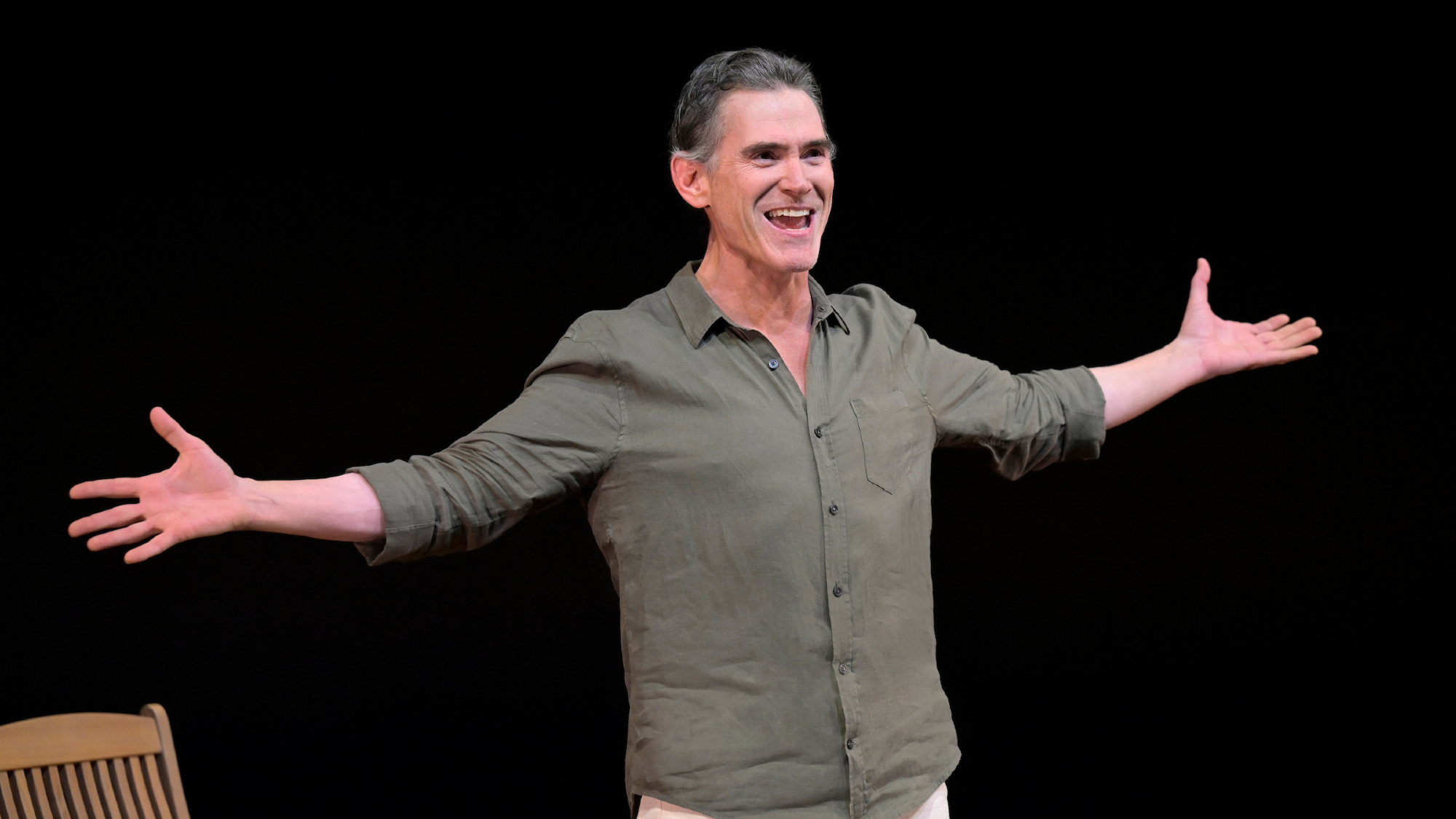Harry Clarke: an 'effortlessly engrossing' one-man play
Billy Crudup is 'hypnotic' but cannot 'paper over the defects'

A free daily email with the biggest news stories of the day – and the best features from TheWeek.com
You are now subscribed
Your newsletter sign-up was successful
A string of Hollywood stars have turned up in the West End this year, said Sarah Crompton on What's on Stage. The latest is Billy Crudup, who has crossed the pond to reprise his role in a play that brought him off-Broadway acclaim in 2017.
David Cale's "Harry Clarke" is a funny, smart and "effortlessly engrossing" one-man piece about a fantasist and conman from the American Midwest who starts to speak in a fey upper-class English accent as a child, then moves to New York, where he reinvents himself as a sexually omnivorous Cockney wide-boy. And Crudup is simply superb in it. He doesn't quite nail the accents, but he "charismatically mines each twist and turn", and lands his lines "with immaculate timing". It amounts to a "real tour de force of storytelling and performance".
Crudup is "hypnotic", said Clive Davis in The Times. Playing a string of different characters, he makes the bare stage feel crowded with "hubbub" and adventure in a piece that is packed with droll one-liners. It's "technically dazzling and highly entertaining", agreed Sam Marlowe in The Stage. But it's not enough to paper over the defects in what is a rather slight play. With a few too many "corkscrew twists", and an anticlimactic ending, Harry Clarke is "effectively a series of Escher staircases leading nowhere, ingenious but inconsequential".
The Week
Escape your echo chamber. Get the facts behind the news, plus analysis from multiple perspectives.

Sign up for The Week's Free Newsletters
From our morning news briefing to a weekly Good News Newsletter, get the best of The Week delivered directly to your inbox.
From our morning news briefing to a weekly Good News Newsletter, get the best of The Week delivered directly to your inbox.
The play "is a tribute to that much loved cultural figure, the gay (or at least queer-coded) conman", said Alice Saville in The Independent. In "The Talented Mr. Ripley" and "Saltburn", these "enigmatic" figures feel like the "product of 20th century homophobia and the double lives it forced so many men to lead", and you sense their "slippery charisma" is at least partly a survival tactic. But the character here has "none of the inner darkness that would make sense of his baroque fabrications".
The evening may please Crudup's fans (and collectors of appalling English accents), but it feels hard to justify the top ticket price of £195 for this minimally staged 80-minute import. Far better to "head to one of London's homegrown pub theatres for all the intrigue, at a tenth of the price".
Ambassadors Theatre, London WC2 (harryclarketheplay.com). Until 11 May
A free daily email with the biggest news stories of the day – and the best features from TheWeek.com
-
 Corruption: The spy sheikh and the president
Corruption: The spy sheikh and the presidentFeature Trump is at the center of another scandal
-
 Putin’s shadow war
Putin’s shadow warFeature The Kremlin is waging a campaign of sabotage and subversion against Ukraine’s allies in the West
-
 Media: Why did Bezos gut ‘The Washington Post’?
Media: Why did Bezos gut ‘The Washington Post’?Feature Possibilities include to curry favor with Trump or to try to end financial losses
-
 The year’s ‘it’ vegetable is a versatile, economical wonder
The year’s ‘it’ vegetable is a versatile, economical wonderthe week recommends How to think about thinking about cabbage
-
 6 exquisite homes with vast acreage
6 exquisite homes with vast acreageFeature Featuring an off-the-grid contemporary home in New Mexico and lakefront farmhouse in Massachusetts
-
 Film reviews: ‘Wuthering Heights,’ ‘Good Luck, Have Fun, Don’t Die,’ and ‘Sirat’
Film reviews: ‘Wuthering Heights,’ ‘Good Luck, Have Fun, Don’t Die,’ and ‘Sirat’Feature An inconvenient love torments a would-be couple, a gonzo time traveler seeks to save humanity from AI, and a father’s desperate search goes deeply sideways
-
 The biggest box office flops of the 21st century
The biggest box office flops of the 21st centuryin depth Unnecessary remakes and turgid, expensive CGI-fests highlight this list of these most notorious box-office losers
-
 A thrilling foodie city in northern Japan
A thrilling foodie city in northern JapanThe Week Recommends The food scene here is ‘unspoilt’ and ‘fun’
-
 Tourangelle-style pork with prunes recipe
Tourangelle-style pork with prunes recipeThe Week Recommends This traditional, rustic dish is a French classic
-
 Samurai: a ‘blockbuster’ display of Japan’s legendary warriors
Samurai: a ‘blockbuster’ display of Japan’s legendary warriorsThe Week Recommends British Museum show offers a ‘scintillating journey’ through ‘a world of gore, power and artistic beauty’
-
 BMW iX3: a ‘revolution’ for the German car brand
BMW iX3: a ‘revolution’ for the German car brandThe Week Recommends The electric SUV promises a ‘great balance between ride comfort and driving fun’